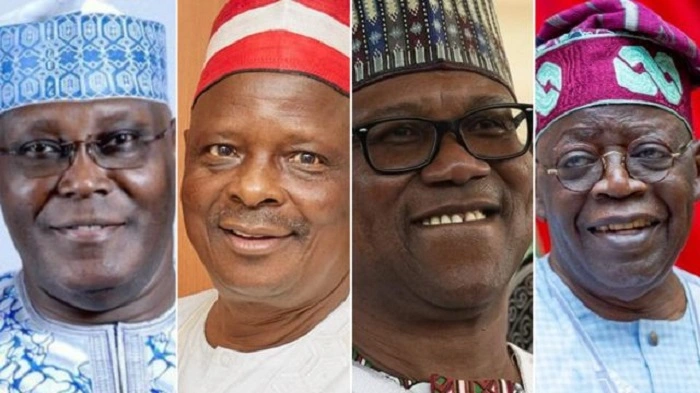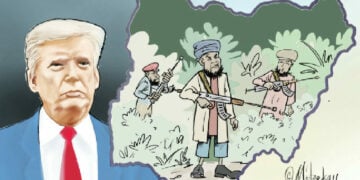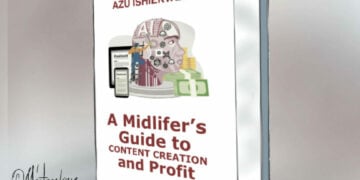A manifesto is a published declaration of the intentions, motives. According to the UK Parliament, a manifesto is a publication issued by a political party before a general election. It contains the set of policies that the party stands for and would wish to implement if elected to govern. A manifesto is actually a promise, an implied contract between the people and political party or candidate presented to the voters on which basis their votes are sought!
In Nigeria, over the years these promissory contracts have been breached by political parties that had issued those promises on which basis they were elected. In 1999, the Peoples Democratic Party (PDP), in what it called, “Covenant With The People Of Nigeria,” declared, “We shall remain strongly committed to:(1) Democracy and good governance;(2) Freedom, human rights and human dignity;(3) Justice, equity, and the rule of law;(4) Integrity and transparency in the conduct of public affairs(5) Sustainable development; through sound education; basic health-care; abundant food production; rapid industrial growth; good housing; full employment; improved infrastructure; efficient transport; regular power supply and basic services.”
For 16 years the PDP failed to honour its ‘covenant’ with Nigerians. Frustrated by the inability of PDP to deliver on its promises for 16 years, it was with hope for a better Nigeria that Nigerians embraced the then opposition party, the All Progressives Congress (APC) and ensured its monumental victory in 2015 which marked the end of the PDP administration that was characterized by corruption and impunity. The APC was sold to Nigerians as a progressive party that abhors corruption that was the hallmark of the PDP. Again, Nigerians have been disappointed. The APC has failed to keep to its manifesto of a better Nigeria as things have gotten worse in all sectors. Nigeria under APC, like the PDP before them have failed woefully in addressing the problem of corruption, as Nigeria remains a member of the infamous league of world’s most corrupt countries as compiled by the Transparency International (TI). Worse still, instead of prosperity that APC promised in its manifesto in 2015, Nigeria is today the poverty capital of the world. In the case of APC Nigerians got the hint earlier on that the contract was not binding when shortly after their victory they began to deny making some of the promises in their manifesto. Today under their watch, inflation is close to 21%.
Unemployment rate is 33%. The naira is one of the worst performing currencies against the dollar in the world.
The 2023 general election is around the corner and Nigerians are being bombarded by manifestos of political parties and their presidential candidates. The presidential candidate of the Labour Party, Peter Obi has released a 48-page document tagged “Our Pact With Nigeria.” The document contains purposeful and participatory leadership for national rebirth based on his 7 governance priorities: Securing Nigeria, ending banditry and insurgency; and uniting our dear nation, to manage our diversity such that no one is left behind; Production-centred growth for food security and export –Moving Nigeria from consumption to production; Restructuring the polity through effective legal and institutional reforms, to fight corruption and enthrone rule of law and all-inclusive and effective government; Leapfrogging Nigeria from an oil-dependent economy to the Fourth Industrial Revolution (4IR) with massive investment in new technologies; Expanding physical infrastructure with a focus on critical sectors like power, multi-modal transportation, gas pipeline, etc. – through efficient public-private partnership (PPP) reforms (unleashing growth-enabling entrepreneurship and market-creating innovations); Youth engagement and human capital development that improves the quality of life of workers and families, and productivity-enhancing education that empowers labour competitiveness; Robust foreign policy that restores Nigeria’s strategic relevance.
Bola Ahmed Tinubu, the presidential candidate of the All Progressives Congress (APC), has also released his campaign manifesto. The 80-page document contains multi-sectoral policy options tagged “Renewed Hope 2023 – Action Plan for a Better Nigeria.” It shows that APC has moved from 2015 campaign manifesto tagged “Change” and 2019 that was tagged “Next Level” to “Renewed Hope,” that invokes late MKO Abiola’s campaign slogan, “Hope’93.” The former Lagos State governor vowed to prioritise national security, economy, agriculture, power, oil and gas, transportation and education when elected as Buhari’s successor after the 2023 election. He also outlined policy options for healthcare, digital economy, women empowerment, judicial reform, federalism, decentralisation of power and foreign policy.
A statement issued by the Director of Media and Publicity, Tinubu-Shettima Presidential Campaign Council, Bayo Onanuga following the release of the manifesto reads, “Our nation’s history affirms that our people constitute our most valuable treasure. Whether the hardworking farmer, the industrious market woman, the dynamic young entrepreneur or the hopeful child, Nigerian people rank among the best anywhere. They excel in every aspect of human endeavour when given a fair chance.
“Senator Shettima and I have traversed every part of our beloved nation, listening to the concerns of our fellow citizens. Young and old, poor and rich, educated and uneducated, Christian and Muslim; all have expressed their views and concerns. People do not seek superficial answers to hard questions. Nor do they want the broken, unimaginative, failed promises repackaged and fed to them again. They want true and innovative solutions which address the challenging realities of today.
“Our party, the All Progressives Congress, was founded on the premise that the people of our beloved country are entitled to the benefits that only progressive good governance can procure.”
On the other hand, Atiku’s 5-point agenda envisions tackling the current lingering insecurity to guarantee the safety and security of lives and property, build a dynamic economy for prosperity, re-structure the polity to foster unity and stability, as well as provide qualitative education. Atiku has promised to restore Nigeria’s fractured unity, as well as rebuild the nation’s battered economy back to the pre-2015 level, where the country was the strongest economy in Africa, with a GDP of $546.7billion, as against the current GDP of $440billion.
The presidential candidate of the New Nigeria Peoples Party (NNPP) Dr Rabiu Musa Kwankwaso, said that his party is all out to salvage Nigeria from its various problems. He boasts that the party has the best manifesto ahead of 2023 general election. He said his party has presented the best manifesto that will help in emancipating the country. According to the NNPP manifesto, the party will adopt “completely new approach to industrial development in the country, which will be one of selective industrialization, relating industrial development resources, including capital, manpower, technology, raw materials and markets. The party will put in place a national plan which will set out well articulated stages of industrial development for Nigeria, to reflect her resources and priorities.





